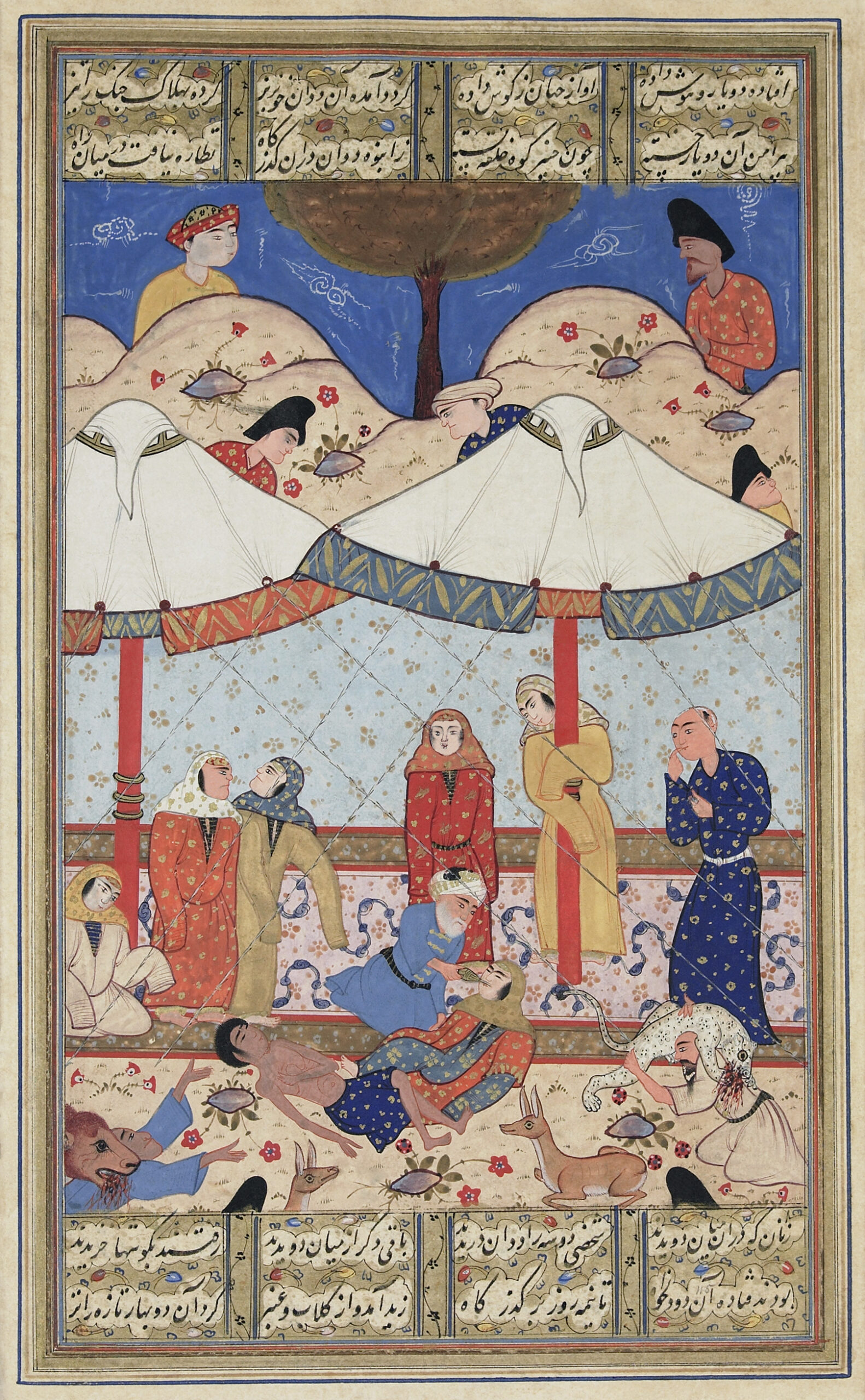As we continue our exploration of iconic characters from Persian poetry, building up to the release of our own translated collection, we turn our attention to one of the most enduring figures in Persian literary tradition: Majnun.
Majnun is the tragic protagonist of the legendary love story Layla and Majnun, penned by the 12th-century Persian poet Nezami Ganjavi. Originally named Qays, Majnun’s story is one of intense, all-consuming love—a love so overwhelming that it drives him to madness. In fact, the name “Majnun” translates to “madman,” a title that reflects the depths of his passion and despair.
The tale begins with Qays falling hopelessly in love with Layla, a girl from his tribe. Their love, however, is doomed from the start. Layla’s father, bound by the rigid social norms of the time, forbids their union, fearing the scandal it could bring upon the family. Despite their deep love for each other, the lovers are kept apart, a twist that has often drawn comparisons to Shakespeare’s Romeo and Juliet. However, while Shakespeare’s lovers choose death to escape a world that won’t accept their love, Majnun and Layla’s story takes a different, more poignant path.
Denied the chance to be with Layla, Qays is consumed by his unfulfilled love, earning the moniker Majnun as he descends into madness. He abandons society, choosing instead to wander the wilderness, where he becomes a hermit and a poet. His sorrow and longing pour forth in verses that he carves into rocks, leaves on trees, and scatters to the winds. Majnun’s poetry is raw and unfiltered, a testament to the depth of his suffering and his unwavering devotion to Layla.
In the image often associated with this tale, we see the tragic final meeting between Layla and Majnun. The lovers, weakened by their long separation and the toll of their unfulfilled desires, have fainted. Layla’s elderly messenger tries in vain to revive her, while wild animals, symbolizing the purity and sanctity of their love, protect the unconscious lovers from any harm.
Majnun has become more than just a character in a story; he is a symbol of pure, unyielding love, a love that persists despite all obstacles, even to the point of self-destruction. When you encounter Majnun in Persian literature, know that he represents the idea of love as an all-consuming force—one that can uplift, but also destroy.
Stay tuned for more of these mini-introductions to iconic characters in Persian poetry. Follow us for updates and be among the first to discover our upcoming poetry collection, where the timeless verses of the Persian masters come alive in translation.

